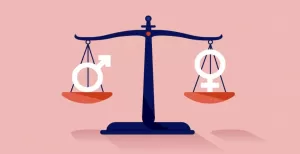There is a myth in capitalism that anybody and everybody—with the necessary drive and ambition—can make a go of starting their own business. Statistically, that is just not the case.
Most new businesses launched in the U.S. fail—at such a high rate that by the end of five years, just over half are still functioning. By year 10, around 65% are gone, and by year 15, the failure rate is 75%. The numbers haven’t changed much since the 1990s.
Those are not the kind of odds that most working people want to bet their savings on. One thing you can bet on is that during a recession, like the one we are in now, those stats are going to be even worse. Small businesses are being crushed. We’ve all seen the closed shops on our streets, the restaurants out of business, and small service providers failing to find a market for their services.
The remarkable thing is that there is almost always someone who is willing to try, someone willing to risk their savings and their skills. One restaurant goes out of business and another one opens in its place; one shop closes and someone else tries selling something else in the same place. To misquote Oscar Wilde, it is the triumph of optimism over experience.
Apparently, there are people trying to sell this same old snake oil to the workers who are now facing layoffs and unemployment. They tell us that this is not a problem caused by capitalism’s crisis, it is an opportunity. An opportunity to start your own business, to invest in yourself, to find your true calling—the opportunity to become your own boss.
Unemployment is not an opportunity.
It is a personal tragedy for anyone who finds themselves in those straits. It is a loss of income, a loss of well-being, a forfeiture of participation in the activities that keep a society alive, and an attack on the dignity that comes from contributing to the social good.
It is also a social tragedy, as the social costs multiply in communities facing higher unemployment rates. Homelessness and hunger, food banks and welfare costs, and family suffering and despair all increase when unemployment increases, as do all the other social and personal consequences that flow from unemployment.
Those who dangle the image of personal freedom and potential wealth in front of us are tapping into the knowledge that for most workers, having a boss means not having control over the work that you do, and when and how you do it. They are tapping into real anger and resentment that many workers have with respect to being beholden to someone who controls their livelihood.
They know that lots of workers feel that getting rid of their boss would be an improvement. That’s why the song “Take This Job and Shove It!” was so popular. Workers may want to get rid of the boss, but that does not mean they want to lose their jobs.
Those who offer up the mirage that unemployment is an opportunity to start a small business are really saying, “We’ve got your job, and now we want your savings too, and your home if you have one.” If people don’t know that, they should because the stats say you are most likely going to fail and lose your investment.
The bank will appreciate your debt and the interest you will have to pay, and the suppliers will appreciate your business. All those industries that live off the hope and desperation of people forced to seek new ways to provide for themselves and their families will applaud your decision to risk your savings in an effort with a 75% chance of failure.
Unemployment is a problem. The solution is not to buy the snake oil, the myth of the “opportunity of unemployment.” The solution is jobs.
That is what we must demand when workers are thrown out or laid off. We must demand a change in the priorities of society. People should have the right to earn a living, to earn a living wage, to live in dignity, and share with others the pride of contributing to their world.
The answer to unemployment is a policy of full employment, of job creation, of creating meaningful jobs.
(Jeanne McGuire is a founding member of the anti-apartheid organization Canadians Concerned with Southern Africa, and past president of the Congress of Canadian Women. Courtesy: Peoples World, a voice for progressive change and socialism in the United States. It provides news and analysis of, by, and for the labor and democratic movements.)




